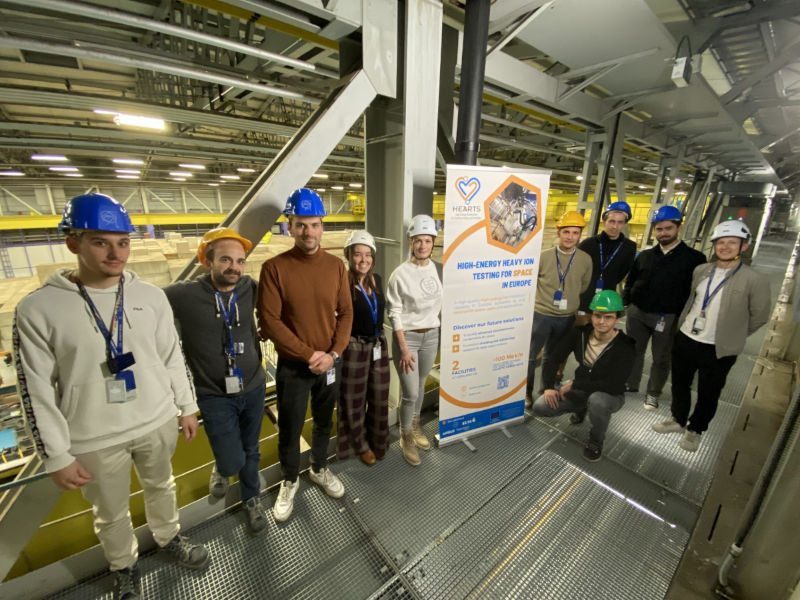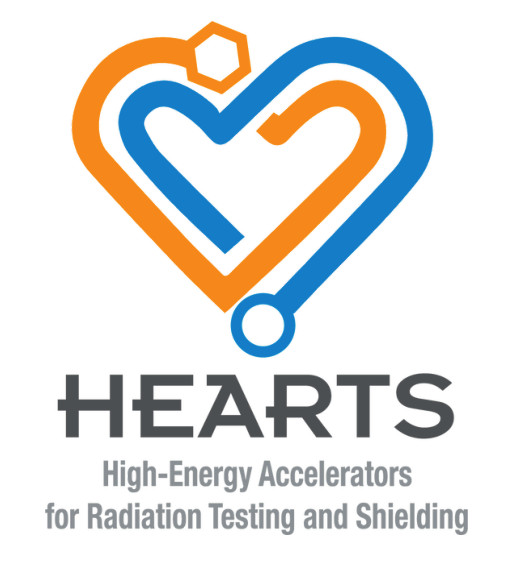
HEARTS’ CERN facility completes second successful radiation testing campaign with industry and scientific users
The European Union-funded HEARTS project has successfully completed a second, expanded radiation testing campaign at its CERN facility.

Galactic cosmic rays are harmful to humans and electronics. From fostering new space applications to accompanying astronauts into deep space, it is essential to develop cutting-edge radiation-tolerant electronics and to acquire decisive knowledge of radiation shielding properties and radiobiology.


Funded by the European Union, the HEARTS project aims at increasing Europe’s autonomy on critical radiation-testing infrastructures by creating high-quality, high-energy heavy ion irradiation facilities in Europe, accessible to and tailored for space users and applications.

HEARTS provides two facilities at CERN, in Switzerland, and GSI, in Germany.

HEARTS offers the space industry a guaranteed and continuative provision of high-energy ion beam time.

HEARTS plays an essential role in guaranteeing European industry autonomous access to space.




The project is coordinated by CERN, in partnership with GSI as the main high-energy ion accelerator infrastructures. The University of Padua is an academic partner, and Thales Alenia Space and Airbus Defence and Space are industrial partners. All have extensive experience in the field of radiation effects and a strong interest in very high-energy ion testing.
Combining high LET values and large penetration depth, our beams are ideal for users wishing to qualify complex packaging structures or full electronics boards, without resorting to cost-expansive preparation (e.g. de-lidding, thinning).


The HEARTS project is funded by the European Union under Grant Agreement No. 101082402, through the Space Work Programme of the European Commission.